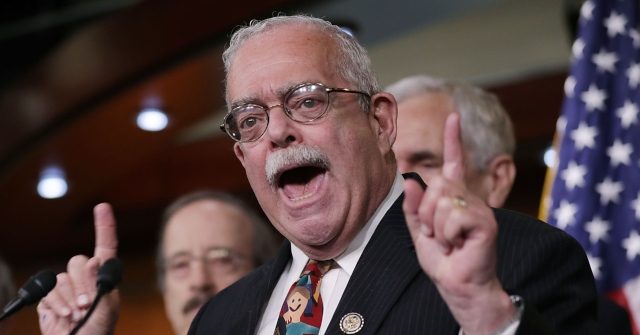On a recent episode of MSNBC’s “Morning Joe,” Rep. Gerry Connolly (D-VA) addressed the concerns of progressives who were disappointed with his selection as the top Democrat on the House Oversight Committee instead of Congresswoman Alexandria Ocasio-Cortez (D-NY). Connolly emphasized that he has a 16-year record of progressive voting and actions, asserting that he is indeed part of the progressive camp. He acknowledged the importance of Ocasio-Cortez as a rising talent within the party, indicating that the Democratic caucus aims to nurture her potential while also recognizing his own capabilities, which he believes qualified him for the committee leadership position.
When co-host Jonathan Lemire probed Connolly about his aspirations in his new role, he highlighted his commitment to effecting change within the party. He refuted the notion that age should be a primary factor in leadership selection, arguing that individual capabilities and past records should take precedence. By pointing out that he has never had an opportunity at this level of influence, Connolly believes that his experience can contribute significantly to advancing the Democrats’ agenda. He also attempted to shift the focus from generational to practical, emphasizing that success in leadership roles should be grounded in concrete achievements and proposals, rather than just the age of the individuals involved.
Connolly’s remarks brought to light an ongoing dialogue within the Democratic Party regarding generational change and the selection of leaders. Many progressives have expressed the desire for younger representation and a shift toward new ideas and strategies that resonate with a broader electorate, particularly younger voters. This desire is especially potent in the wake of electoral setbacks that have prompted calls for reevaluation of party strategies. Connolly’s leadership selection could signal a balancing act within the party—acknowledging the need for innovation from emerging leaders like Ocasio-Cortez while also relying on the established experience of longer-serving members.
While Ocasio-Cortez represents a fresh perspective and the urgency of addressing climate change, social justice, and other progressive issues, Connolly’s experience may help in navigating the complexities of legislative processes and bipartisan negotiations. His commitment to nurturing new talent aligns with the larger goal of ensuring that the progressive wing remains influential within the party’s broader framework. This mentorship approach could foster collaboration between established politicians and the new generation, leading to more cohesive party strategies and outreach efforts.
In the context of ongoing political challenges, such as opposition to key Democratic policies and initiatives, Connolly’s understanding of oversight responsibilities may prove crucial. His experience could enable him to leverage the committee’s powers effectively to hold the administration accountable while advocating for progressive priorities. The combination of his seasoned legislative skills and the fresh perspectives offered by rising progressives like Ocasio-Cortez may yield a more robust Democratic response to contemporary issues, thereby strengthening the party’s overall influence.
Ultimately, Connolly’s appointment can be viewed as a reflection of a party at a crossroads, where the merging of experience and fresh ideas may shape its future. As Democrats navigate internal divisions and external pressures, maintaining a dialogue between different generational perspectives will be vital to crafting effective policies that resonate with a diverse electorate. By embracing this diversity within the party and supporting both seasoned leaders and emerging voices, the Democrats may be better positioned to reclaim their standing and respond to the evolving needs of the American populace.

